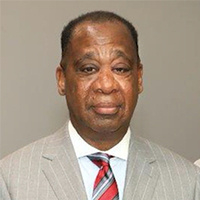 Pollocksville White Collar Crime Lawyers, North Carolina
Pollocksville White Collar Crime Lawyers, North Carolina
Sponsored Law Firm
-
 x
x

Click For More Info:
-
The Law Offices of Richard L. Cooper, P.A.
848 Brickell Avenue Suite 800 Miami, FL 33131» view mapDWI/DUI, Drug Trafficking, Felony Nationally Ranked Top 40 Under 40
With Richard L. Cooper you can expect a trusted confidant who will work diligently to fully understand your case and determine a road map to help you regain control of your life.
800-756-2781
Not enough matches for Pollocksville White Collar Crime lawyer.
Below are all Pollocksville Criminal lawyers.
Sponsored Lawyers
1-10 of 13 matches
Criminal
C. Randy Emory was born and raised in the small, rural town of Wilson NC. Throughout his childhood, Mr. Emory displayed many leadership qualities. In High School, Randy was President of the Student Body, also finding time to excel and letter in three sports. Ultimately, Mr. Emory decided to attend the University of North Carolina at Chapel Hill for his collegiate studies. While there, he continued his involvement in student government, serving on a multitude of committees. Randy also mentored children in the Big Brother Big Sister Program. He is a very proud member of the Kappa Alpha Psi Fraternity. After graduating from UNC in 1985, Mr. Emory enrolled in law school at North Carolina Central University in Durham, NC. While in his studies, he also interned with State Farm Insurance company. There he was able to really grasp how Insurance Companies handled their many claims that they received on a daily basis. After completing Law School, Randy worked in the claims department at State Farm Insurance for three years. While there, he handled over three thousand auto claims, gaining valuable knowledge. In 1991, Mr. Emory was able to transfer that knowledge to an established personal injury firm in Charlotte where he worked for ten years. In 2001, Randy started the Emory Law Firm, and it has been successfully operating ever since. He has handled over 16,000 auto claims during his career. Randy remains a very active member in his community, having served as Vice Chairman of the Citizen Review Board for the Charlotte Mecklenburg Police Department. He also has taken the responsibility of helping at risk youth in his area. Mr. Emory is also a member of Friendship Missionary Baptist Church. He currently resides with his wife Tammy and two boys.
(more)



 Richard L. Cooper Miami, FL
Richard L. Cooper Miami, FL AboutMiami Attorney at Law
AboutMiami Attorney at Law ServicesCriminal Defense
ServicesCriminal Defense

